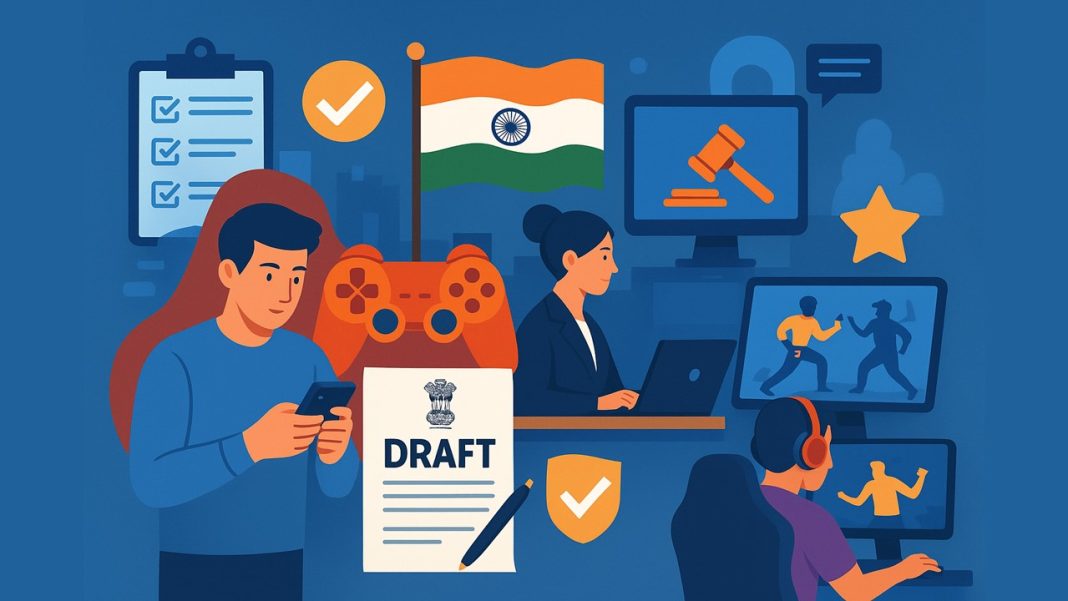India Proposes New Rules to Regulate Online Gaming and E-Sports with Central Authority
India has released draft rules to manage its fast-growing online gaming and e-sports industry. The rules propose a new central authority to manage registration, classification, and enforcement. These draft rules, shared on Thursday, will be open for public feedback until October 31.
The key idea of these draft rules is to set up the Online Gaming Authority of India, a body headquartered in the National Capital Region that owns a fully digital office.
The chairperson will be appointed as an additional secretary in the Ministry of Electronics and IT (MEITY), joined by three joint secretaries of the Information and Broadcasting Ministry, the Ministry of Youth Affairs and Sports, and the Department of Financial Services.
Key Role of New Gaming Authority
The authority will have wide powers. It can decide if an online game is a money game, keep a list of registered games, look into complaints, and punish offenders by suspending or cancelling licenses.
It can also act like a civil court to ask for documents or call people to appear. In urgent cases, the chairperson can make decisions alone, but the board must approve them later. The decisions of authority can be further challenged before higher authorities.
Recognition of E-sports and Online Games
This is the first time e-sports will get formal recognition and promotion from the Ministry of Youth Affairs and Sports. All the providers of e-sports will need to register with the new gaming authority.
Online gaming will be regulated by the Ministry of Electronics and IT (MEITY). The Ministry of Information and Broadcasting will decide in which category to classify these games: fun, learning, or skill development.
Any offered online social game found without registration will be considered a contravention by the new gaming authority.
Registration and Adherence for Online Gaming Platforms
All providers of social games and e-sports will need to register themselves, sharing the description of their game, intended age group, revenue model, and an undertaking to comply with the law. This registration will stay valid for the duration of five years. After completion of the five-year duration, a renewal application will be required.
Social game providers will also need to inform the authority about any “material change” implemented in their games, like modifications in gameplay or business model.
The non-compliance, contravention, or misrepresentation can result in the omission of registration.
Complaint Redressal and Protection of Users
Each gaming platform has been instructed to launch a complaints redressal mechanism. If users are dissatisfied with how a platform handles their complaint, they can take it to a Grievance Appellate Committee for review.
While making these rules, stronger safeguards for user funds were also ensured. All money collected before the law comes into effect must be refunded within 180 days so that no user’s balance is left stuck.



